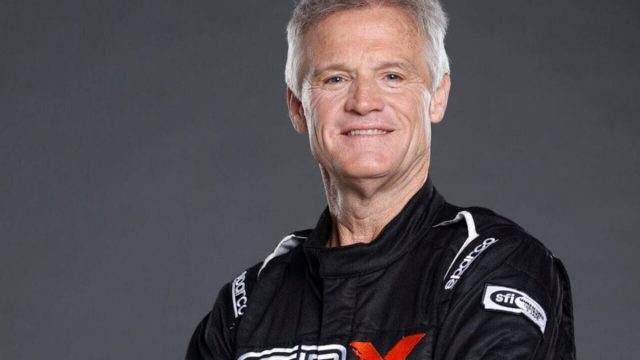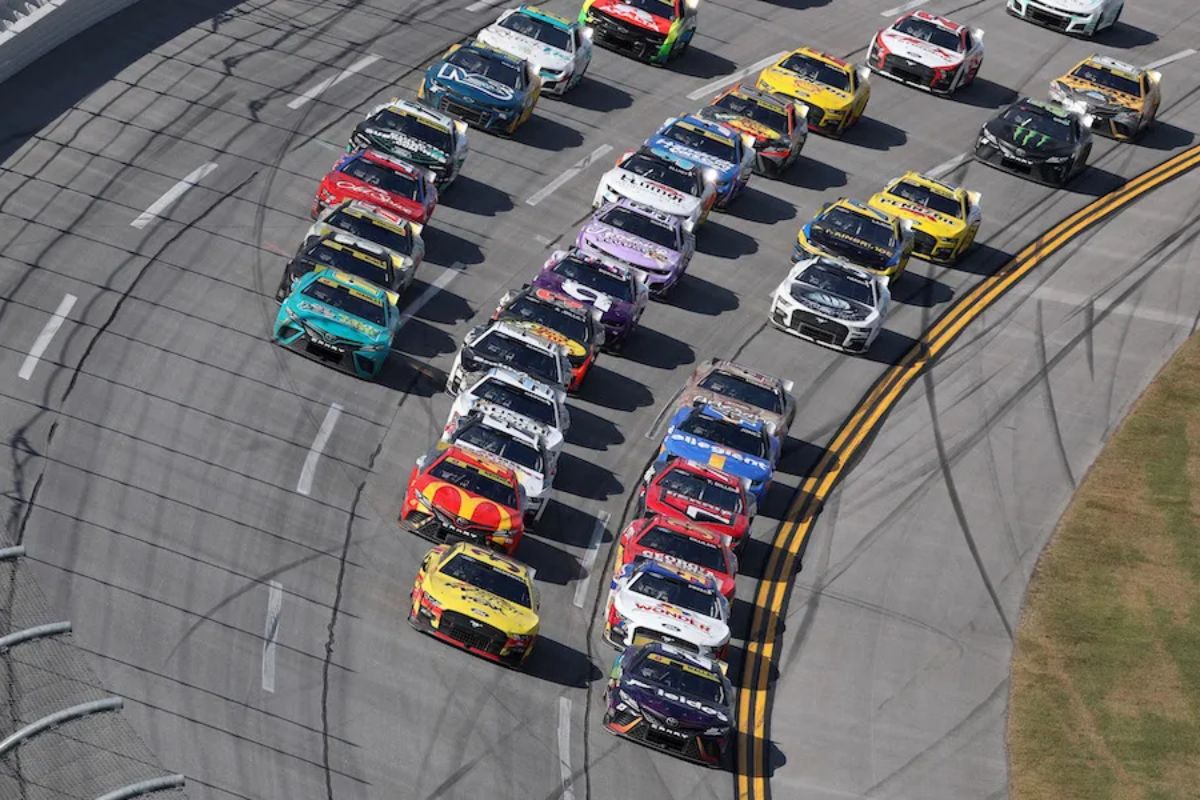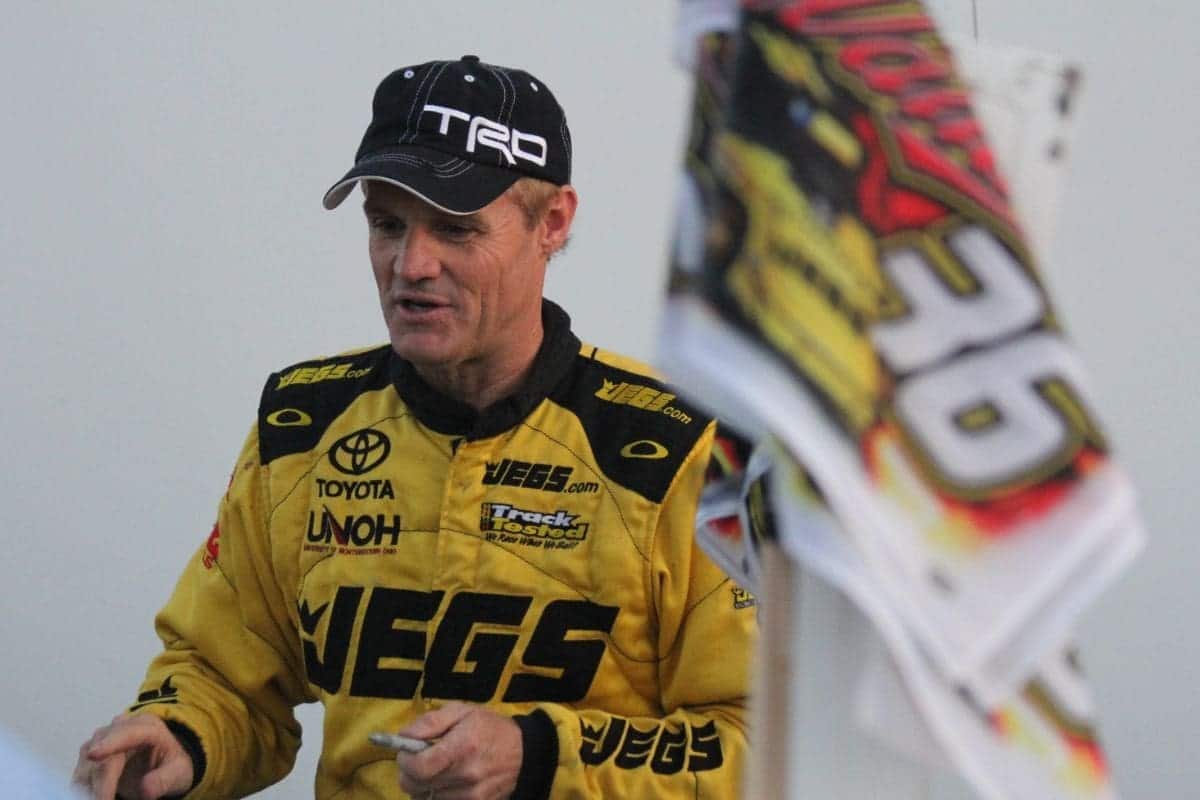Kenny Wallace’s Eye-Opening Insight Behind NASCAR Break: During the recent break in NASCAR activities coinciding with the Paris Olympics, Kenny Wallace offered a compelling psychological perspective that prompts reflection within the racing community. He emphasized the significance of this pause as an opportunity for fans to deepen their emotional ties to the sport, positing that such moments of absence can enrich appreciation and loyalty.
Key Highlights
- Kenny Wallace highlights that the break can deepen fans’ emotional connections to NASCAR, enhancing appreciation for the sport.
- He suggests that scarcity, created by the break, can increase fans’ loyalty and investment in NASCAR.
- Wallace emphasizes the importance of reflecting on mental health awareness within the racing community during high-pressure periods.
- He demands open conversations about psychological challenges faced by drivers, fostering a supportive environment.
NASCAR’s Olympic Break and Fan Reactions
The recent two-week break in NASCAR due to the Paris Olympics has sparked varied reactions among fans, highlighting a tension between the enthusiasm for the racing schedule and the need for drivers to recharge with their families. This temporary break has left many fans feeling disoriented, as the absence of weekly races disrupts their established routines. The customary anticipation that accompanies race weekends has been replaced by uncertainty, prompting some fans to express dissatisfaction with the timing of the break.
Despite the relatively short duration of two weeks, the psychological impact on fans should not be overlooked. For a devoted fanbase accustomed to the rhythm of races, this break represents an interruption in their engagement with the sport. Conversations among fans reflect a growing impatience; many are keen for the return of live action, expressing a sense of loss in the absence of their weekend ritual. This sentiment emphasizes the emotional investment fans have in NASCAR, making the break feel more noteworthy than mere time off.
Conversely, drivers have welcomed the opportunity for respite, recognizing the importance of family time amidst a grueling schedule. This divergence in perspectives highlights a crucial dynamic within NASCAR: the balance between fan expectations and driver well-being.
Kenny Wallace’s Thoughts on the Break
Kenny Wallace’s insights into the recent break in NASCAR due to the Paris Olympics highlight a calculated perspective on fan engagement and anticipation within the sport. During a recent episode of ‘Kenny and Charlie Top 2,’ Wallace posed a thought-provoking question regarding the potential impact of the two-week break on NASCAR’s audience. He suggested that this intentional pause might foster a greater appreciation for the sport among fans.
Wallace articulated a compelling argument that constant accessibility could lead to complacency. By taking a break, NASCAR provides fans with an opportunity to reflect on their emotional investment in the sport. This notion aligns with the psychological principles of scarcity and desire; when something is temporarily unavailable, its perceived value can increase. Wallace’s assertion invites consideration of how anticipation can improve the complete fan experience.
Moreover, the break serves as a calculated move to reassess the audience’s focus, allowing them to miss the excitement of racing. This sentiment may cultivate a deeper loyalty and yearning for the upcoming events. Wallace’s discussion emphasizes the importance of balancing regular engagement with intervals of absence, which could ultimately lead to a more passionate and invested fan base.
“Alright, will the two weeks that NASCAR is taking off for the Olympics make people like NASCAR more? There is just a thought, Charlie, that if you give the people what they want all the time, then they have a chance to complain. If you give them two weeks off, they might miss it. Will they like NASCAR more?” – (Wallace)
Charlie Marlow’s Perspective
Charlie Marlow offers an honest analysis of the unusual break in NASCAR’s schedule, likening it to the impact of a bye week in football, yet emphasizing the extended absence‘s potential to leave fans feeling disconnected.
With two consecutive weeks without races, Marlow notes that the situation resembles a more pronounced break, similar to three weeks off when considering the weekly racing rhythm. This extended interval can disrupt the continuity that fans have come to expect and enjoy, potentially diminishing their engagement with the sport.
Marlow highlights that the abrupt halt creates a void in the routines of dedicated fans, who ordinarily immerse themselves in the racing culture. The absence of live events can lead to feelings of detachment, as the exhilaration of competition is replaced by a lack of activity. He articulates that while fans may initially welcome a break, the reality of extended downtime can breed a sense of longing for the sport they cherish.
In his commentary, Marlow also touches on the duality of fan engagement. While the majority of fans revel in NASCAR’s offerings, a smaller group exists that thrives on criticism. This dynamic introduces an extra layer to the community’s interaction with the sport, where even the absence of races can spark discontent among detractors.
“Yes, and I think people already miss it. This is weird. This [Paris] Olympics break is weird. I’m trying to think of a football schedule—if you follow a team and you have a by-week, okay, you have a by-week. But to have two straight weeks off—and really, if you think about it, because if you race every week, it’s kind of like three off weeks, right? It’s three straight weeks.” – (Charlie Marlow)
The Psychology Behind the NASCAR Break
Understanding the psychological impact of an extended break in NASCAR’s schedule reveals how fan engagement can fluctuate, highlighting the longing for the sport and the complex relationship between appreciation and criticism.
The temporary absence of racing creates a psychological void that intensifies fans’ emotional connections to the sport, often leading to a paradoxical increase in their appreciation. As Kenny Wallace aptly points out, the discontent expressed by some fans may stem from a deeper affection for NASCAR, which becomes more evident during periods of absence.
“I go to the psychology part. The fans love NASCAR, but then you also have the group that is 25%. So we have 100%; we’ve already done all the polls; about 77% of people love NASCAR; and the other small portion love it but want to complain about it. That is their sport.” – (wallace)
This phenomenon can be understood by psychological reactance, where individuals exhibit a heightened desire for something perceived as scarce or unavailable. The break allows fans to reflect on their experiences with NASCAR and, in many cases, realize how integral the sport is to their lives. In this way, the longing for racing acts as a catalyst for renewed appreciation, similar to the familiar sentiment expressed in the Passenger song, “You only know you love her when you let her go.”
Moreover, the 23% of fans who may express dissatisfaction during regular seasons could find themselves missing the opportunity to voice their grievances in the absence of racing. This dynamic reveals that criticism, often perceived as negative, can paradoxically boost overall engagement and affection for NASCAR.
“I think they’re going to miss complaining about it, and that’s going to make them love it more. So I really feel like this is a brilliant move by NASCAR.” – (wallace)
Kenny Wallace’s View on NASCAR’s Strategy
Wallace’s insights into NASCAR’s calculated scheduling highlight a deliberate approach to improve fan engagement through a temporary absence from racing, aiming to rekindle appreciation for the sport. By thoughtfully pausing the season during the Paris Olympics, NASCAR enables fans to focus on another major sporting event while simultaneously reflecting on their passion for motorsports.
Wallace articulates a profound psychological lesson inherent in this method. He posits that the absence of races will reinforce fans’ appreciation for NASCAR, reminding them of what they love about the sport. The two-week break offers a rare opportunity for introspection, allowing fans to engage in discussions about previous races and the unique aspects that make NASCAR compelling. This reflective period can cultivate renewed enthusiasm, potentially enhancing loyalty among the fanbase.
“I really feel like this is a psychology lesson for everybody. I feel like this is going to be a big lesson. I think this is a big turning point in NASCAR. Two weeks off is going to make people—it’s going to remind them why they love NASCAR.” – (wallace)
Furthermore, this approach signals a crucial moment for NASCAR, as it seeks to evolve its relationship with viewers in an era dominated by diverse entertainment options. By embracing a break, NASCAR not only mitigates the risk of losing viewers to the Olympics but also encourages fans to recognize the intrinsic value of the motorsports experience.
News in Brief: Kenny Wallace’s Eye-Opening Insight Behind NASCAR Break
The insights shared by Kenny Wallace during the Paris Olympics break highlight the potential benefits of downtime in the NASCAR community. This break catalyzes fans to reflect on their emotional investments in the sport, ultimately enhancing loyalty and engagement.
By considering the significance of racing, participants within the NASCAR ecosystem can cultivate a deeper appreciation for the sport, thereby fostering a more robust and resilient community in the face of future challenges.
ALSO READ: Kenny Wallace Remembers His Unforgettable NASCAR Debut: “Dale Earnhardt Was Spotting for Me”



